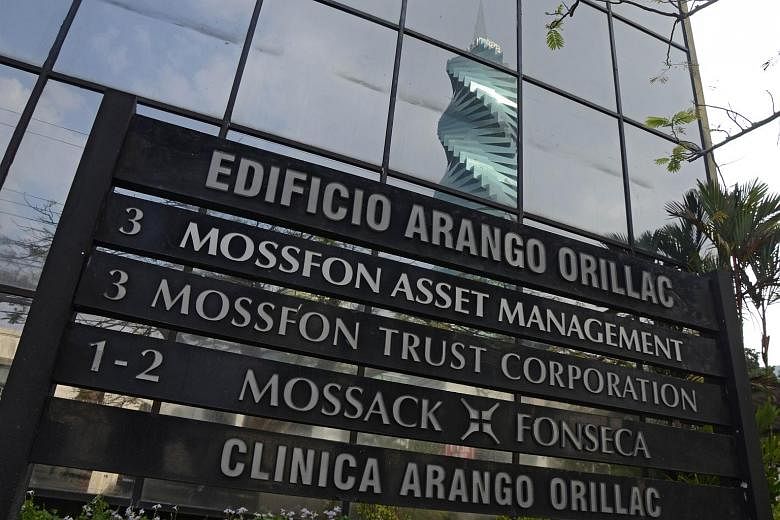Dozens of world leaders and celebrities have been implicated after secret offshore dealings linked to them were exposed on Sunday (April 3) in a leak described as one of the largest in history.
A group of journalists went through a massive trove of 11.5 million tax documents, dubbed the Panama Papers, and shared them with the world.
Here are some things to know about the expose:
1. Where did the documents come from?
They were taken from Panama-based law firm Mossack Fonseca. They date back nearly 40 years and contain details on more than 214,000 offshore entities connected to people in more than 200 countries and territories.
The records were obtained from an anonymous source by German daily Sueddeutsche Zeitung.
2. What does Mossack Fonseca do?
Founded in 1977, the law firm is the world's fourth-biggest provider of offshore services - the practice of outsourcing, or the hiring of an external company to perform some business functions in a country other than the one where the products or services are actually developed or manufactured.
Mossack basically helps create shell companies that can be used to hide ownership of assets. Its worldwide operations take place in tax havens like Switzerland and the British Virgin Islands.
Mr Ramon Fonseca, a co-founder of the firm, was an adviser to Panamanian President Juan Carlos Varela.
3. Who exposed the leak?
The International Consortium of Investigative Journalists (ICIJ), a global network of investigative journalists, and more than 100 news organisations around the globe published the results of the investigation via a website, panamapapers.icij.org
It said the documents were reviewed by a team of more than 370 journalists from nearly 80 countries working in more than 25 languages.
4. Who are some of the big names implicated?
About 140 politicians from more than 50 countries as well as celebrities have been implicated, including heads of state, their aides and elected officials - some by close friends and family members. They include:
- Russian President Vladimir Putin, whose close associates "secretly shuffled as much as US$2 billion (S$2.7 billion) through banks and shadow companies".
- Chinese President Xi Jinping, whose brother-in-law was linked to offshore companies by the report.
- Iceland Prime Minister Sigmundur David Gunnlaugsson and his wife, whom the files allegedly show secretly owned an offshore firm holding millions of dollars in Icelandic bank bonds during the country's financial crisis.
- Saudi King Salman bin Abdulaziz bin Abdulrahman Al Saud, who is said to have held an unspecific role in a company in the British Virgin Islands that took out mortgages on luxury homes in London "in relation to" him.
- British Prime Minister David Cameron, whose late father allegedly played an instrumental role in creating and developing an offshore investment firm that managed to avoid taxes.
- Malaysian Prime Minister Najib Razak, whose son allegedly became the director of two offshore companies.
- Fifa ethics committee member Juan Pedro Damiani, whose law firm allegedly had business ties with three men indicted in the Fifa bribery scandal.
- Barcelona and Argentina football star Lionel Messi, who allegedly owned a Panamanian shell company with his father that had previously not come up in Spanish investigations into the duo's tax affairs.
- The files also identify a convicted money launderer who claimed he'd arranged a US$50,000 illegal campaign contribution used to pay the Watergate burglars, 29 billionaires from Forbes' rich list, and Hong Kong film star Jackie Chan.
5. Were any illegal activities uncovered?
Though most of the alleged dealings are said by the ICIJ to be legal, they are likely to have a serious political impact on many of those named, especially to the reputations of those who have professed an anti-graft stance.
In a speech in Singapore in July 2015, Mr Cameron decried the use of offshore companies to buy up high-value properties in London.
"We know that some high-value properties - particularly in London - are being bought by people overseas through anonymous shell companies, some with plundered or laundered cash," he said.
"There is no place for dirty money in Britain. Indeed, there should be no place for dirty money elsewhere," he added.
- Sources: panamapapers.icij.org, The Guardian, Agence France-Presse, The Straits Times archives

